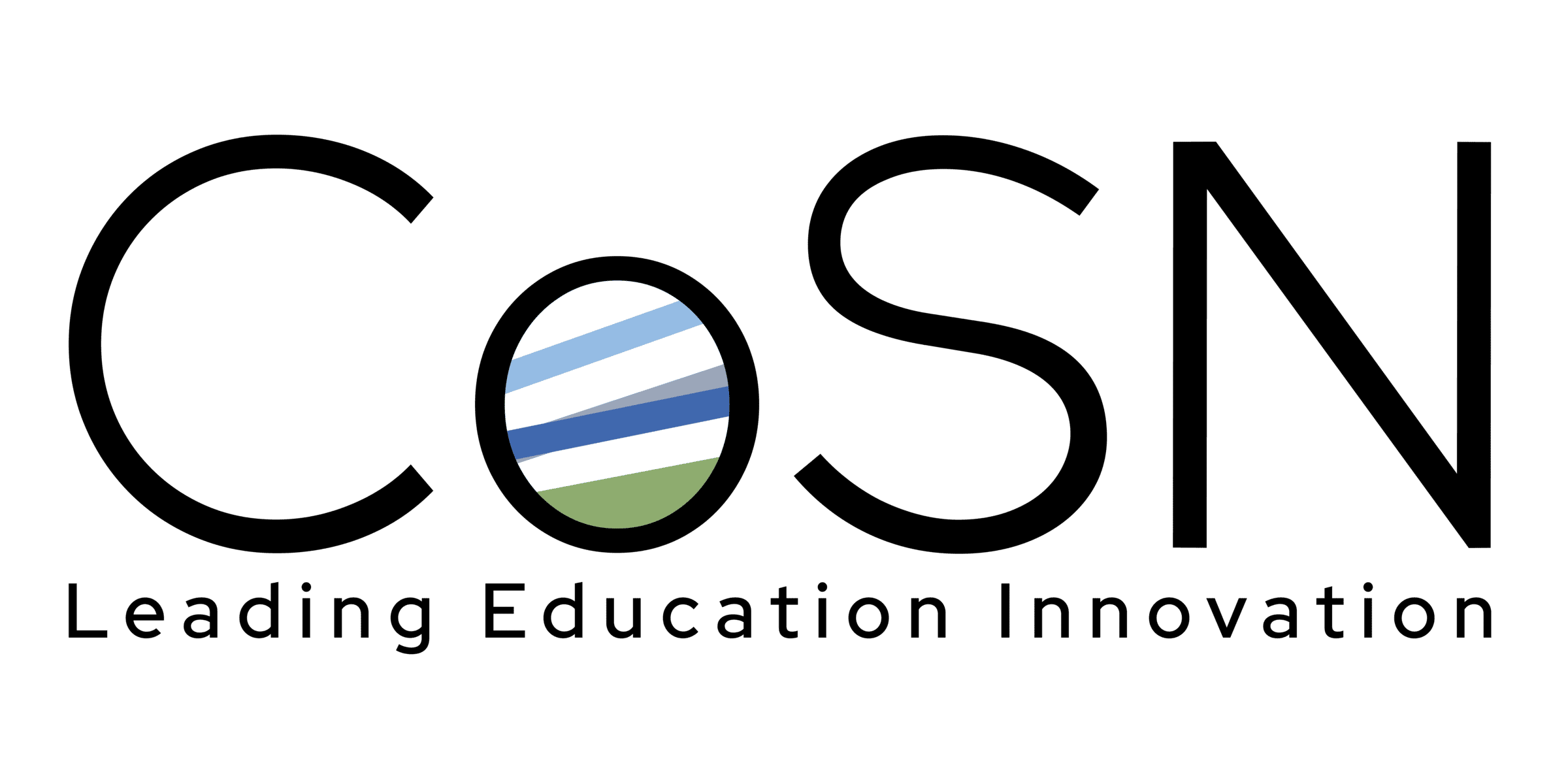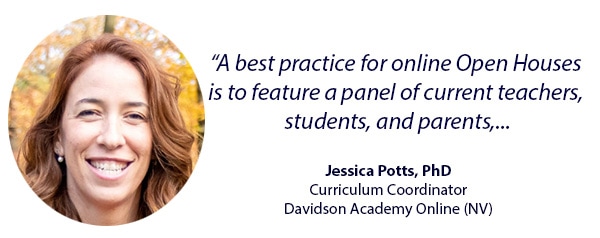Parent orientation is not an easy process, as it requires constant communication, a great deal of transparency, and a willingness to meet families where they are. There are additional challenges if your students are online.
Research has repeatedly illustrated that having family support is one of the most important factors in helping students succeed in online learning environments (Kong & Wang, 2021; Kumi-Yeboah, Dogbey, & Yuan, 2018; Park & Choi, 2009). Parents often need just as much training as their children when it comes to understanding the intricacies of online learning. How can parents support their children if they are also new to this learning environment? How can they create a parental support network if they’re new to a school community that might be more geographically spread out?
To address this challenge, Davidson Academy Online developed a parent orientation program that begins even before students begin their school year. 

Another helpful tool is a Welcome Website which should contain important dates, the textbook list, curricular information, information about opportunities for parents to interreact and who to contact with questions. You can also send them new family newsletters in an effort to keep them abreast of school news and happenings.
I recommend continuing parent orientations during the summer, with the faculty and staff hosting a variety of informational meetings. Some meetings that have been helpful include a STEM Overview and Humanities Overview. These overviews give families specific information about curricular sequences, common departmental practices, and hints and tips about how to be successful in online classes. These meetings should be hosted largely by the teachers, giving new families a chance to connect with the professionals who will be working with their children on a daily basis
The final steps of parent orientation occur as school begins, with a fully online Back to School Day, a new parent check-in meeting early in the fall, and monthly meetings thereafter with the rest of the parent community.
The results of a well-planned parent orientation program are a vibrant learning community and a group of parents who are eager to partner with school leadership. Parent orientations are well worth the effort, and I know it will make a difference in your online program.
Author: Dr. Jessica Potts, Curriculum Coordinator at Davidson Academy Online
Published on: November 29, 2022
CoSN is vendor neutral and does not endorse products or services. Any mention of a specific solution is for contextual purposes.
Blog supporting CoSN’s Goal 2: DRIVE INNOVATION Provide thought leadership to incubate and drive innovative practices.
References
Glasgow, N. & Whitney, P. J. (2009). What successful schools do to involve families : 55 partnership strategies. Corwin Press.Kong, S., & Wang, Y. (2021). The influence of parental support and perceived usefulness on students’ learning motivation and flow experience in visual programming: Investigation from a parent perspective. British Journal of Educational Technology, 52(4), 1749–1770. https://doi.org/10.1111/bjet.13071
Kumi-Yeboah, A., Dogbey, J., & Yuan, G. (2018). Exploring Factors That Promote Online Learning Experiences and Academic Self-Concept of Minority High School Students. Journal of Research on Technology in Education, 50(1), 1–17. https://doi.org/10.1080/15391523.2017.1365669
Park, J.-H., & Choi, H. J. (2009). Factors Influencing Adult Learners’ Decision to Drop Out Persist in Online Learning. Educational Technology & Society, 12(4), 207–217.


